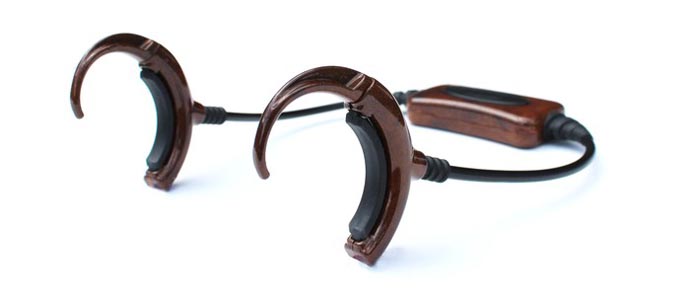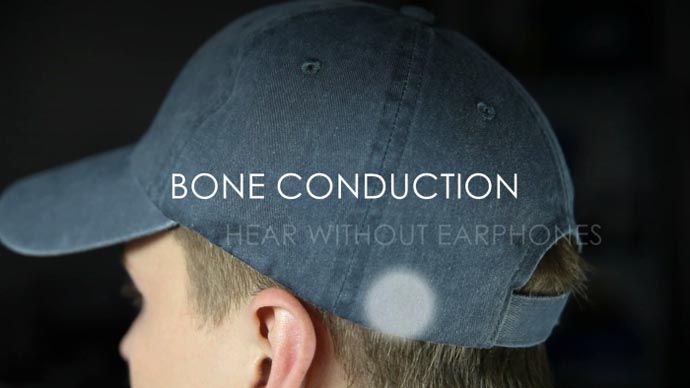Much is said about the risks of cycling while listening to music, but a new type of ear phone, which forgoes speakers in favour of ‘surface sound technology’, promises a safer alternative.
Sound Band fits behind the ear and uses a process referred to as surface-excitation to produce sound without the need for traditional in-ear speakers.

According to the designers of Sound Band: “The user experiences exceptional audio quality, with crisp treble and resonant bass, all while being able to carry on a conversation and remain aware of the world around them.”
Cycling while listening to music
Listening to music while cycling on the road is a contentious issue.
It is vitally important to keep your wits about you on the road, whatever your mode of transport, but routinely equipping cars with loud sound systems while at the same time discouraging those riding bicycles, or on foot, the chance to listen to music, appears to be a case of double standards. Let us know what you think.
Do you listen to music while cycling or walking? Do you feel it puts you at greater risk?
Another alternative to traditional ear buds or headphones, that does not drown out ambient sound, is possible by conducting sound through the skull.
Cynaps is the world’s first Bluetooth bone conduction headset incorporated into a hat.

Sewn into an ordinary-looking baseball cap, the high-tech device allows you to answer calls and listen to music via an iphone or android handset.
The advantage for cyclists is that hearing via the ear is unhindered – perfect for remaining aware of approaching traffic.
Cycling and future tech
The Sound Band and Cynaps designs may sound far fetched, but both are available to buy now and are simply the latest examples of how high-tech devices may soon become as commonplace a cycling accessory as a water bottle.
An increasing number of cyclists now use helmet cams to record evidence of bad driving in case they are knocked off, but the forthcoming Google Glass promises a world of new possibilities.
Google Glass is a voice-activated computer worn like a pair of spectacles that projects images into the top corner of the wearer’s field of vision. They offer full internet access as well as the option to record video footage on the move. Google Glass is to go on sale later this year in America for £1,000 a pair. As with all technology, expect the price to drop.
Cycle insurance for here and now
There are GPS anti-theft trackers for bicycles available to buy now, but they are not effective enough to do away with the need for traditional cycle insurance. Cover from the ETA includes protection against theft, accidental damage and vandalism (including at race and charity events), £5m liability, breakdown cover for your bike and you and a host of other benefits. From less than £22 per year.
Get an instant bicycle insurance quote.
Mary Ann Hooper
I don’t listen to music when cycling, but I’m very deaf, so I can’t hear traffic. Should I be banned from cycling? No, because I never rely on sound to tell me about dangers, I rely on my sight. People who can hear should never rely on sound either. Whatever is coming might not make any sound (another bike, or a quiet electric car). All cyclists should be made aware not to rely on sound, but always to look before changing direction. Pedestrians too – they are forever walking out in front of my bike because they are relying on sound, not sight. Remember the Green Cross Code? Stop, LOOK Listen and Think. All of them!
Jeremy Hicks
I do wear earphones while cycling, and sometimes while walking. When cycling I almost always have an earphone in only one ear – I generally listen to radio programmes, not to music, so stereo hi-fi is not an issue for me. I take care to ensure that I am aware of what is going on around me, and I am not aware that my wearing earphones has ever caused a problem for me or any other road user. I agree with your comment about double standards.